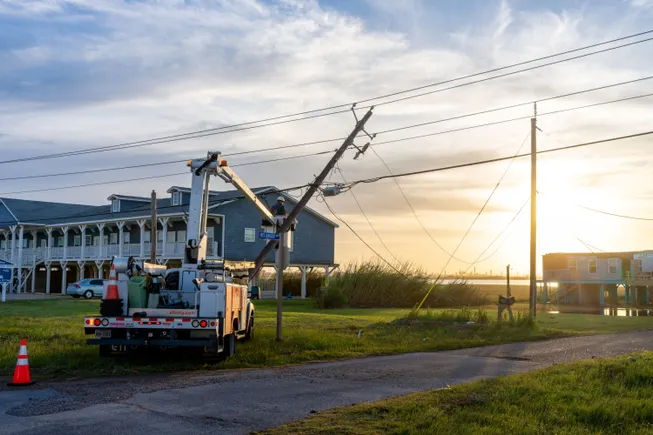
WASHINGTON— The U.S. Department of Energy (DOE) today announced new updates to the Department’s National Environmental Policy Act (NEPA) procedures, fixing the broken permitting process and delivering on President Trump’s pledge to unleash American energy dominance and accelerate critical energy infrastructure. As part of a government-wide effort to restore common sense to permitting, DOE published an interim final rule rescinding all NEPA regulations and published new NEPA guidance procedures for the Department of Energy.
“President Trump promised to break the permitting logjam, and he is delivering,” said Energy Secretary Chris Wright. “America can and will build big things again, but we must cut the red tape that has brought American energy innovation to a standstill and end this era of permitting paralysis. These reforms replace outdated rules with clear deadlines, restore agency authority, and put us back on the path to energy dominance, job creation, and commonsense action. Build, baby, build!”
“This overhaul restores NEPA to the role originally envisioned by Congress—informing agency decision makers, not needlessly obstructing the development of critical infrastructure,” said Deputy Energy Secretary James Danly. “We’re eliminating the accretion of decades of unnecessary procedure and reestablishing a legally sound permitting regime that is disciplined, predictable, and fast. Agencies finally have the authority to conduct reviews efficiently, avoid duplicative reviews, and deliver timely decisions consistent with the law.”
With President Trump’s leadership, the Council on Environmental Quality coordinated a historic, interagency effort to simplify NEPA compliance, lower construction costs, eliminate years-long delays, and ensure environmental reviews can no longer be used to stall American energy production and infrastructure development. Today’s action fulfils President Trump’s Executive Order 14154, Unleashing American Energy, and implementing reforms enacted by Congress under the 2023 BUILDER Act.
Background:
This effort builds on President Trump’s January 2025 action to rescind CEQ’s outdated NEPA regulations and return the agency to its statutory role of coordinating reform across the federal government, empowering agencies to make timely, lawful permitting decisions. Altogether, these reforms will enable the deployment of more efficient technologies and the better environmental outcomes that they provide.
Key reforms include:
- Eliminating outdated agency procedures, many of which had not been revised since the 1980’s, while maintaining world class environmental standards and allowing America to build again!
- Reducing the maximum Environmental Assessment through Environmental Impact Statement report completion time limitations from three years to two years.
- Requiring the designation of a “lead agency” and empowers the lead agency to clarify responsibilities of all parties involved, requires coordination amongst the agencies, and requires the agencies collaborate on the development of a single environmental document.
- Implementing strict deadlines and page limits. This will provide certainty necessary for investment in American infrastructure and end past practices of paralysis by analysis.
- Providing clear direction that agencies should use common sense, relying only on verified scientific studies that already exist and not contemplating wildly unfathomable scenarios that they do not have legal authority to address.
- Increasing transparency and allowing project sponsors to participate in the process.
- Directing agencies to maximize the use of a streamlined process known as “categorical exclusions” for activities that are regularly conducted and widely understood to not impact the environment.
Additionally, DOE’s NEPA Procedures include discussion of the recent Supreme Court decision in Seven County, which limits requirements for agencies to analyze upstream and downstream Greenhouse Gas (GHG) effects and curtails radical climate change analysis associated with activities outside agency jurisdiction. DOE NEPA analysis should not consider environmental effects of separate projects, especially those over which DOE does not exercise regulatory authority.
DOE’s updated procedures identify specific actions excluded from NEPA review, including issuance of emergency Orders pursuant to section 202(c) of the Federal Power Act and Presidential Permits, and authorizations to import natural gas from any country and to export natural gas to free-trade agreement countries.
DOE’s Interim Final Rule will publish in the Federal Register on Tuesday, July 1, 2025. A PDF of the IFR is available here.
DOE’s updated NEPA guidance documents are available here.
###





















